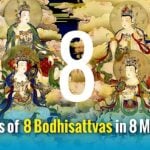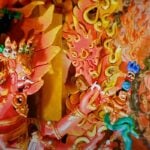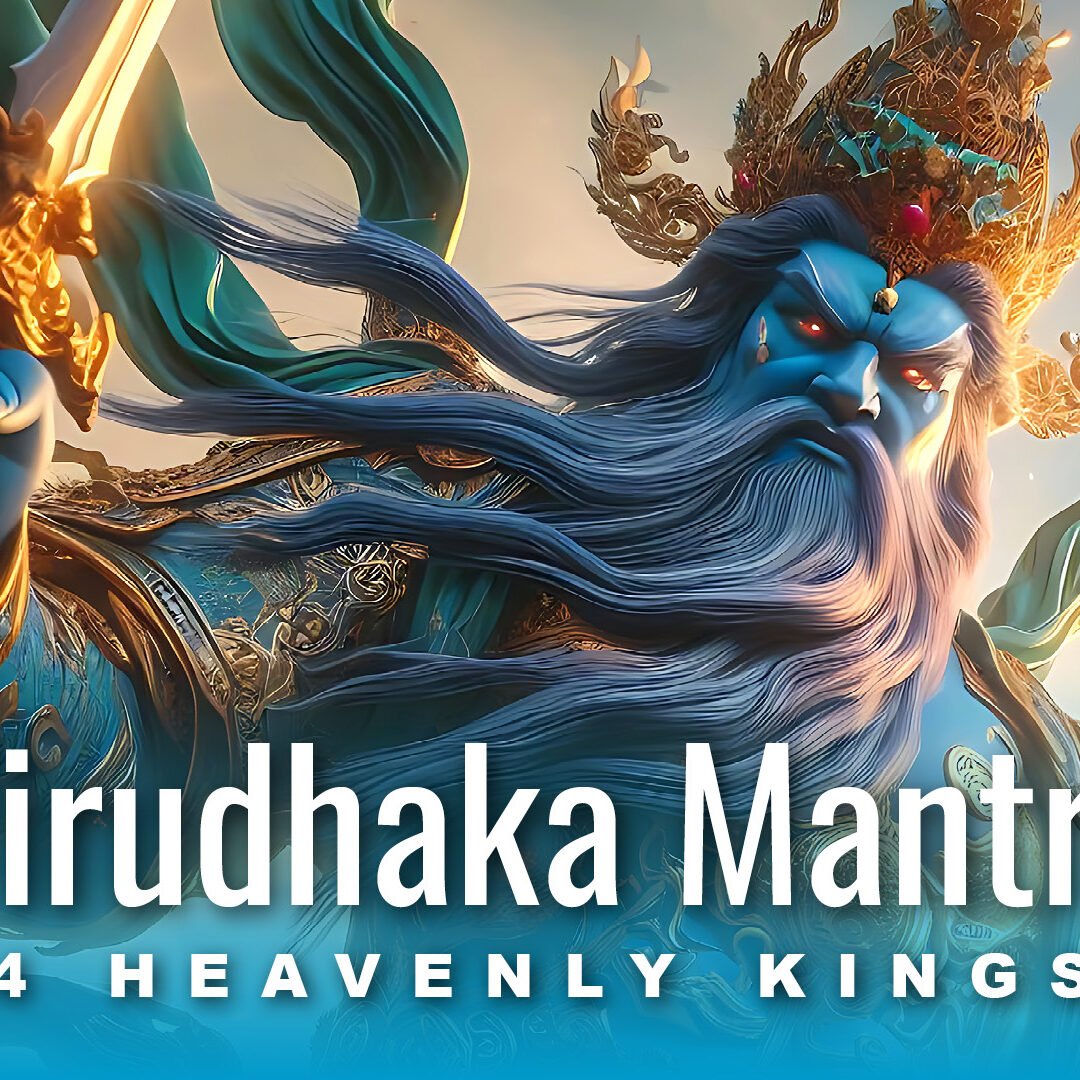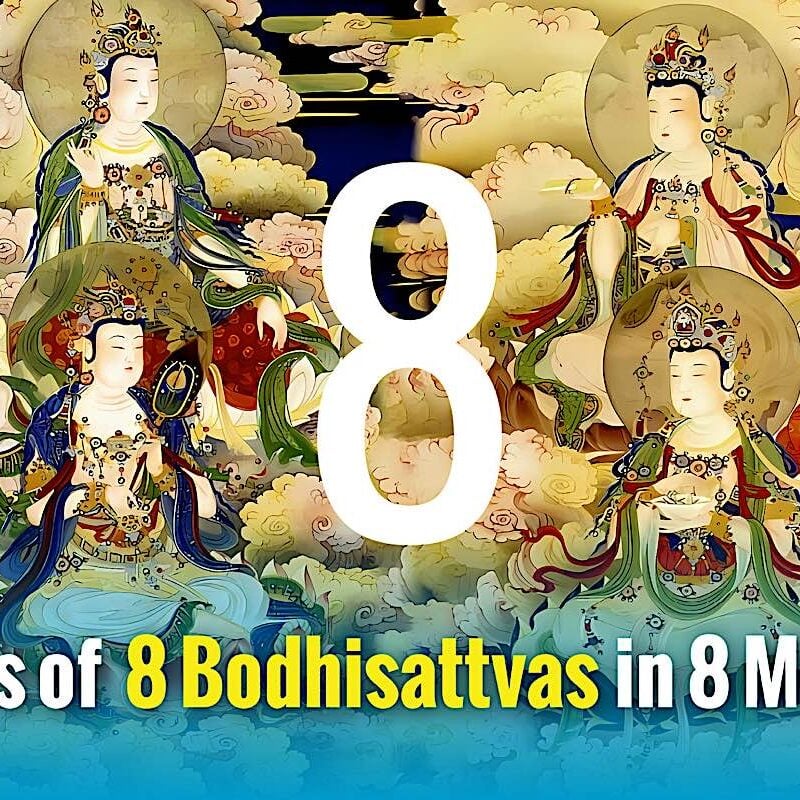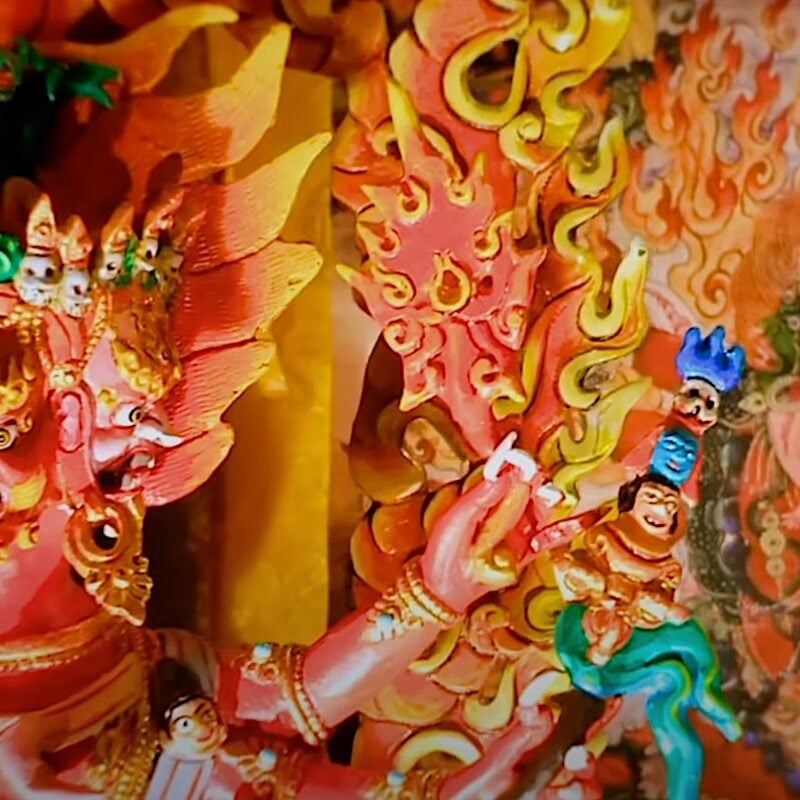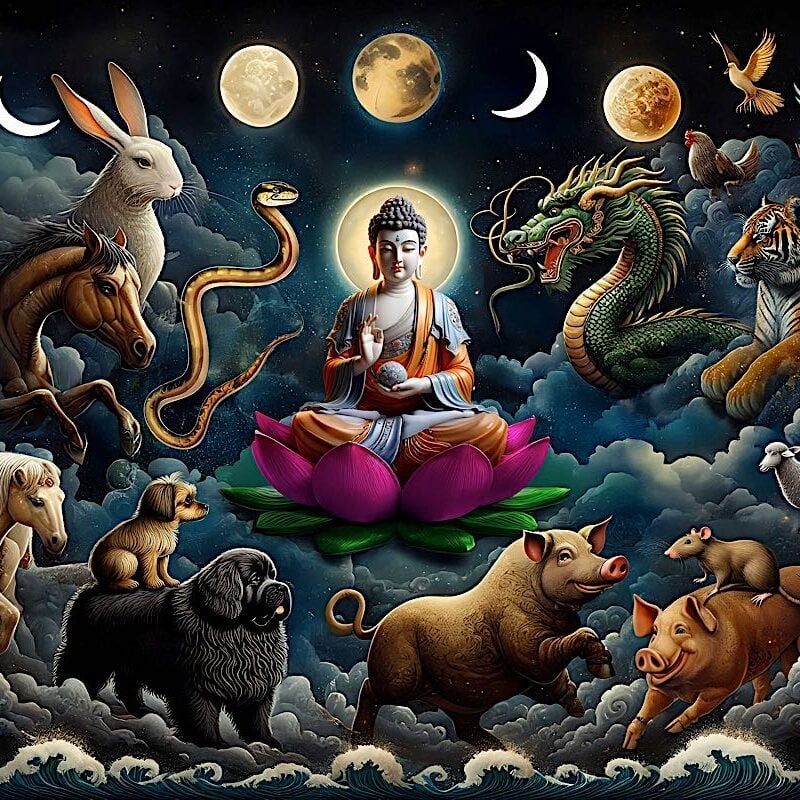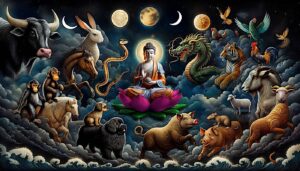Video: Vasudhara Yellow Tara, Mother Earth or Prithvi Mata, for Prosperity Abundance: four mantras
Vasudhārā’s name is a melodious Sanskrit phrase that translates to “stream of gems.” Thinking of Her as the Stream-of-Gems Tara paints a picture of abundant wealth and prosperity. Vasudhara Yellow Tara is also none other than Mother Earth as an Enlightened Bodhisattva. Why is Prosperity and Wealth so vital to Buddhist practice? Why is connection to the Earth and Environment critical to benevolent Bodhisattva practices?
CONTENTS
00:00 Introducing Vasudhara Yellow Tara Mother Earth
01:01 Benefits of the Dharani explained by Buddha: Sutra
02:02 Vasudhara nurtures, sustains and enriches
02:42 Vasudahara as Prithvi Mother Earth Witness of Shakyamuni Buddha
04:16 Practicing Vasudhara: environmental activism and generosity as offerings
04:41 Buddha helps Sucanda: Sutra story of the Dharani and its benefits
06:16 Chanting the Mantras and Dharani
06:39 Main Mantra Om Sri Vasudhara Ratna Kashetri Svaha (three times)
07:57 Short mantra Om Vasudharayai Svaha (three times)
08:15 Three forms of Vasudhara and her symbols
09:26 Tara Who Bestows Wealth 11th of 21 Taras
10:07 Praise of 11th Tara in English and Sanskrit
10:45 Atisha Lineage Mantra of the 11th Tara
11:08 Nyingma Lineage Mantra of the 11th Tara
11:31 Lama Zopa: explains the wealth vase of 11th Tara
12:12 Bodhisattva mission and cherishing Mother Earth
The goal of stable livelihood for the lay Buddhist is a noble one, enabling Buddhists to support the dedicated monastic community, and providing stability in life that gives the practitioner the ability to help others. In the Sutra of Vasudhara Dharani, Buddha explained the benefits of reciting her mantra and Dharani:
You, too, should receive the Vasudhārā Dhāraṇi, keep it in mind, recite it, teach it, memorize it, master it, and explain it to others in detail. This will benefit many individuals. It will bring them happiness. It will bring love and compassion to the world, and it will bring benefit and happiness to hosts of beings, gods and humans alike.Golden Vasudhara Tara is not about greedily asking for more, and more, but rather about attaining wealth so that we can give and give. The poison of greed is overcome by generosity — which is only possible if we have a stable livelihood.
Ideally you chant her longer Dharani from the Sutra when you have time. (Watch for our future video with the full longer Dharani.) Otherwise, the shorter, more popular Mantra in Sanskrit, at least three times, seven, 21 or 108 times.
Om Sri Vasudhara Ratna Nidhana Kashetri Svaha
Mantra explained:
- Om is Praising the Body, Speach and Mind of Vasudhara
- Sri is Sanskrit for “Abundance”
- Vasudhara is the Name of the Goddess which means “Endless Stream of Jewels”
- Ratna indicates she belongs to the Jewel Buddha FamilyNidhana — means “treasure”
- Kashetri — means “cultivate the treasure”
- Svaha — “well said” and “so be it” or “thus it is”
The entire mantra, translates contextually:
I prostrate and praise the Goddess of Abundance Vasudhara of the Jewel Family, who helps us cultivate material and spiritual wisdom treasures, so be it.
She also has a short mantra if you are rushed:
Oṃ Vasudhārāyai Svāhā.
There are three main forms of Vasudhara who is ultimately Tara: two-armed, six armed and as the 11th Tara of the 21 Taras (The video goes into more detail!)
As the 11th Tara, her Praise, from the 21 Taras is:
Homage! She Who is able to summon
The assembly of earthly guardians
Shaking, frowning, with her Hum sign
Saving from every misfortune!
(ART CREDIT: LASHA MUTUAL available on her website: https://lashamutual.com/)
As Vasudhara Tara, she controls all the earth guardians. In Sanskrit, this praise is:
Namah samanta bhu
palapatalakarshana kshame
chalat bhrku ti hum kara
sarvapada vimoch ani
Her mantra, as the 11th Tara Who Controls all Earth Guardians, in the Atisha lineage is:
Om Tare Tuttare Ture Vasudharini Svaha
THIS IS FROM THE BOOK “THE POWER OF MANTRA” by LAMA ZOPA RINPOCHE, available on Amazon (affiliate link): https://amzn.to/47dYsIj
In the Nyingma lineage the mantra is:
Om Tare Tuttare Ture Mama Vasu Pushtim Kuru Svaha
(in Sanskrit)
in Tibetan: Om Tare Tuttare Ture Mama Basu Pushtim Kuru Soha
The practice of Vasudhārā is not simply about personal gain, it is about prospering so that we may benefit others, the Bodhisattva mission to help all sentient beings.It is also about honouring Vasudhara as Mother Earth. Holding a close relationship to Mother Earth is for the benefit of all beings.
More articles by this author
Search
Latest Features
Please support the "Spread the Dharma" mission as one of our heroic Dharma Supporting Members, or with a one-time donation.
Please Help Support the “Spread the Dharma” Mission!

Be a part of the noble mission as a supporting member or a patron, or a volunteer contributor of content.
The power of Dharma to help sentient beings, in part, lies in ensuring access to Buddha’s precious Dharma — the mission of Buddha Weekly. We can’t do it without you!
A non-profit association since 2007, Buddha Weekly published many feature articles, videos, and, podcasts. Please consider supporting the mission to preserve and “Spread the Dharma." Your support as either a patron or a supporting member helps defray the high costs of producing quality Dharma content. Thank you! Learn more here, or become one of our super karma heroes on Patreon.
Lee Kane
Author | Buddha Weekly
Lee Kane is the editor of Buddha Weekly, since 2007. His main focuses as a writer are mindfulness techniques, meditation, Dharma and Sutra commentaries, Buddhist practices, international perspectives and traditions, Vajrayana, Mahayana, Zen. He also covers various events.
Lee also contributes as a writer to various other online magazines and blogs.





